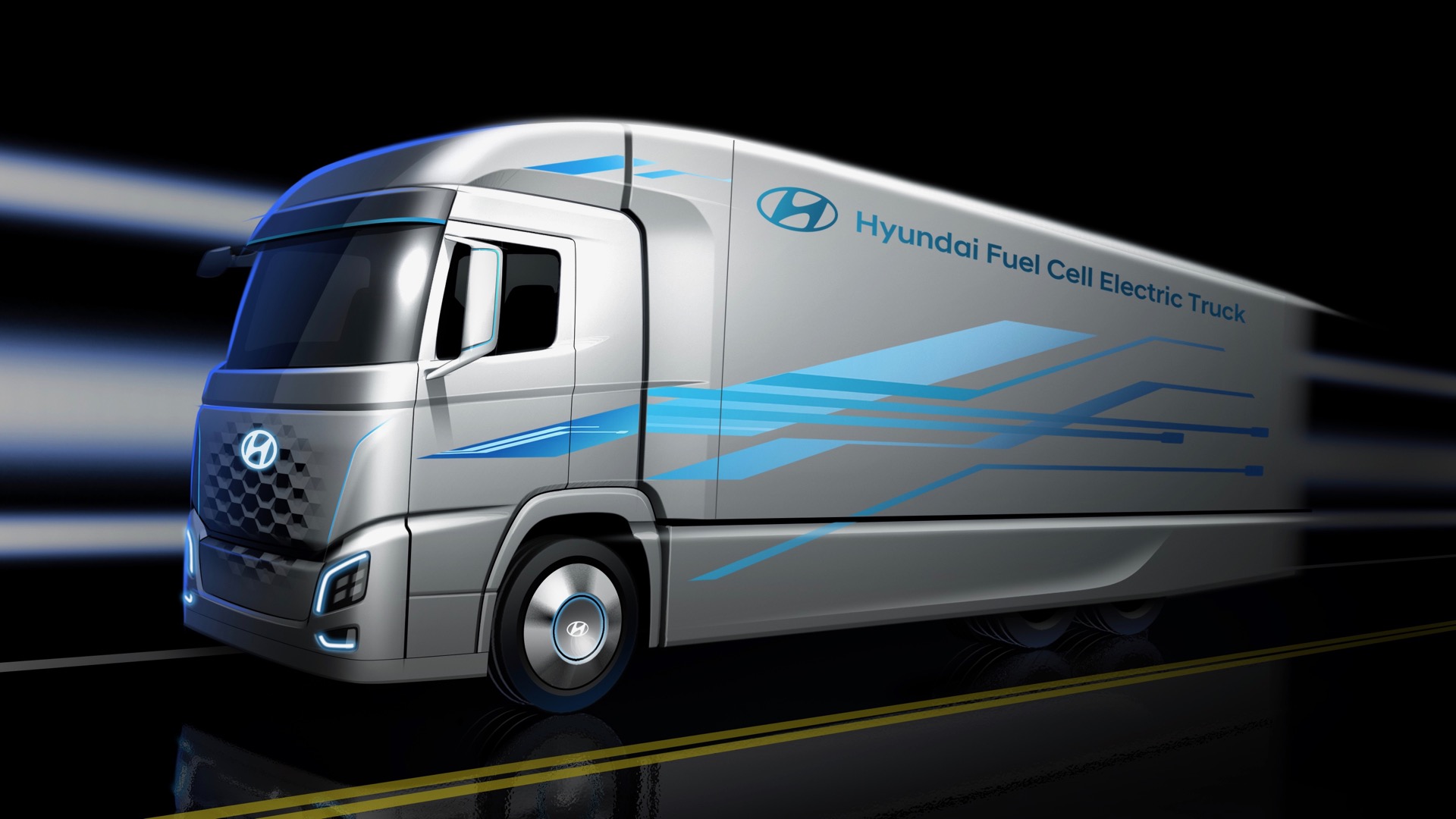

Hyundai’s interest in hydrogen fuel cells isn’t limited to passenger cars. The Korean automaker claims it will deploy 1,000 fuel cell commercial trucks in Switzerland between 2019 and 2023. Several companies are developing zero-emission commercial vehicles and, as with cars, a competition is emerging between fuel cells and batteries.
Hyundai has sold small quantities of Tucson Fuel Cell crossovers since 2013, but this marks the automaker’s first foray into fuel cell commercial trucks. The fuel cell truck has an estimated range of 400 kilometers (248 miles) according to Hyundai, made possible by eight onboard hydrogen storage tanks. Refueling takes seven minutes.
Unique styling elements will mark the truck as a fuel cell vehicle. A spoiler and side protector will help improve aerodynamic efficiency, according to Hyundai. The automaker also quoted power output of 469 horsepower and 2,507 pound-feet of torque for the truck.
Hydrogen-infrastructure company H2 Energy will coordinate the deployment of the trucks, as well as fueling stations and a supply of hydrogen generated from renewable sources.
The Swiss truck project is part of an effort by Hyundai to diversify its fuel cell vehicle offerings beyond passenger cars. The automaker deployed fuel cell buses at the 2018 Winter Olympics in PyeongChang, South Korea, and is currently conducting pilot programs in other South Korean cities with an eye toward starting mass production in 2020. A second-generation fuel cell crossover called the Nexo will launch later this year. Hyundai is interested in fleet uses for it, including car-sharing and taxi services.
Hyundai’s approach mirrors that of Toyota, another major proponent of hydrogen fuel cell vehicles. In addition to selling small batches of its Mirai sedan, Toyota unveiled a fuel cell bus at the 2017 Tokyo Motor Show. It plans to deploy production versions during the 2020 Summer Olympics in the Japanese capital. Toyota is also testing a prototype fuel cell semi truck called Project Portal in California.
Alongside Toyota and Hyundai, startup Nikola Motors plans to launch a hydrogen fuel cell semi truck around 2020. But as with passenger cars, more manufacturers of commercial vehicles seem to be gravitating toward batteries. Established companies like Daimler, Navistar, and Volvo are planning battery-powered trucks, while Tesla has racked up hundreds of orders for its own battery-electric semi truck.